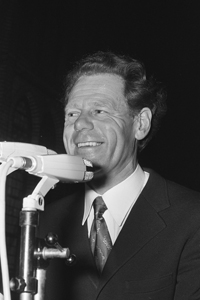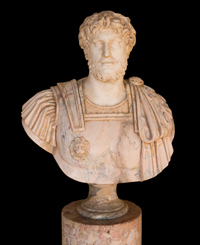
Your complimentary articles
You’ve read one of your four complimentary articles for this month.
You can read four articles free per month. To have complete access to the thousands of philosophy articles on this site, please
News
News: June/July 2021
Two Philosophers’ Prizes • Two Philosophers’ Deaths • One Philosopher’s Birthday — News reports by Anja Steinbauer
A Prize for Béatrice Longuenesse
Béatrice Longuenesse, Professor Emerita of Philosophy at New York University, has won this year’s Hegel Prize. This is one of the most prestigious philosophical awards, given every three years by the City of Stuttgart (Hegel’s home town) to a prominent academic who has made a special contribution to furthering the humanities. The jury commented that “in her work she succeeded in taking up and bringing into dialogue very diverse traditions, questions and cultural impulses.” Longuenesse was born in France, studied at the Sorbonne and held earlier professorships at various universities, including the Sorbonne and Princeton. She has written highly regarded texts on Kant and Hegel. Longuenesse has also worked on the nature of self-consciousness, and its relation to the use of the first person pronoun, publishing I, Me, Mine: Back to Kant, and Back Again in which she drew on both continental and analytic traditions.
And a Prize for Jürgen Habermas … or hold on
Jürgen Habermas, Germany’s best-known living philosopher, was offered and briefly accepted the 2021 Sheikh Zayed Book Award Cultural Personality of the Year Prize. The annual award was to be given to the 91 year old philosopher at the Abu Dhabi book fair at the end of May. It is designed to honour Arab and international personalities and organisations that have contributed to the furthering of Arab culture, to tolerance and to peaceful coexistence. It is given under the patronage of Abu Dhabi’s Crown Prince Mohammed bin Zayed bin Sultan Al Nahyan. Last year the prize was given to Palestine poet Salma Khadra Jayyusi. Having initially accepted the award, Habermas rethought his response and has now rejected it, saying that he had not been clear about the political connection: “I declared that I was ready to accept this year’s Sheikh Zayed Book Award. This was the wrong decision, which I hereby correct. I had not sufficiently appreciated the close connection of the institution which gives these prizes in Abu Dhabi with the political system there.”
Rudolf Burger, anti-multiculturalist, has died
Austrian philosopher Rudolf Burger has died at the age of 82. Burger had a PhD in physics as well as academic qualifications in sociology and philosophy. This summer, Burger was due to receive the Paul Watzlawick Prize of Honour. Burger was known as a notorious sceptic, who wasn’t afraid to be controversial. He was cynical about the usefulness of the public engaging with the country’s National Socialist past: “It is a highly questionable thesis devoid of empirical basis that remembering evil will prevent its repetition.” He was equally sceptical with respect to multiculturalism, believing it to be “playing with fire.” He defended his cultural pessimism in the following way: "My pessimism is grounded in the fact that I believe to see on the one hand how strong our modern and postmodern world is in certain respects, but how fragile the whole edifice is on the other hand.”
Hans Küng, multiculturalist, has died

Hans Küng, theologian and searcher for a global ethical consensus, pictured in 1973
Photo © Dutch National Archives
The Swiss theologian and philosopher Hans Küng has died at the age of 93. Küng was known as a rebel, critic of the Catholic church and adversary of several popes. Above all, he wanted to warn and provide a conscience for religion in our time.
Among Hans Küng’s many philosophically relevant initiatives, perhaps the most prominent was the Universal Ethics Project launched by UNESCO in 1997. Küng was the driving force behind the project, which brought representatives of all religions and philosophies into dialogue to try to find basic moral commitments that all could agree on. As early as 1989, Küng had initiated a Global Ethics Movement. This he proposed at a World’s Religions and Human Rights Conference in Paris, where he stated that “there will be no peace for the world if there is no peace between the religions.” In 1993, Küng’s Global Ethics concept took a new form, a ‘Declaration of the Parliament of the World’s Religions’, a proposal signed by 6,500 people of diverse religious backgrounds. His proposal for a global civic ethics strongly influenced the Commission on Global Governance in 1995. The most fundamental value of Global Ethics is treating all human beings humanely. There are four principles all religions share: 1. Commitment to a culture of nonviolence and respect for life. 2. Commitment to a culture of solidarity and a just economic order. 3. Commitment to a culture of tolerance and a life of truthfulness. 4. Commitment to a culture of equal rights and partnership between men and women. Küng pointed out that a ‘Global Ethics’ as proposed by him was not a new ideology or even a religion but was intended to form a basis for understanding and peaceful coexistence.
Küng did not approve of naïve visions of the afterlife: “that one sits on little golden chairs singing hallelujah.” In an interview he once said that he was “curious what will be in the afterlife.” He said he would enjoy meeting Wolfgang Amadeus Mozart and Thomas More, but would not be upset if that didn’t happen.
Happy Birthday Marcus Aurelius

Marcus Aurelius (121-180), Stoic philosopher and Emperor of Rome, marble bust, 17th Cent.
Photo by Jebulon, Creative Commons 1.0 licence
26 April 2021 was the 1,900th birthday of Marcus Aurelius. He had the unusual distinction of being both a notable philosopher and a Roman Emperor at the same time. He was anything but an ivory tower academic. He fought wars, battled against the floods of the Tiber in Rome, engaged with administration and jurisdiction and dealt with the public disaster of one of the worst epidemics of the ancient world. He was a lifelong Stoic, and the journal of private reflections which he wrote while on military campaigns grew into a book still read today, called The Meditations. It records the fascinating inner struggle of a lover of wisdom and ascetic virtue to square his moral and intellectual commitments with the demands of being the most powerful person in the world.









